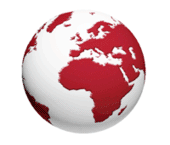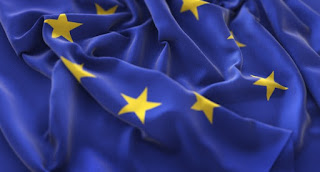Sovereign Europe, dangerous world: Five agendas to protect Europe’s capacity to act
www.GEOPoliticalMatters.com
At the end of April, the Netherlands Trade and Investment Office in Taipei changed its name to “Netherlands Office Taipei,” echoing moves made by Australia, Japan, Britain, and Poland over the last few years. But the Chinese response was different this time. As well as making diplomatic representations, Chinese government newspapers carried pieces attacking the Dutch government, called for boycotts of Dutch products, and halted the shipment of medical supplies to the Netherlands. This came at a time when the Netherlands had almost 40,000 confirmed cases of covid-19 and a higher death toll than the official numbers in China.
EU member states are increasingly facing challenges that cut across borders – pandemics, financial crises, cyber attacks, climate change, refugee crises – and that can only be solved with collective action. But, today, rather than coming together around common solutions, many great powers instrumentalise their connections to compete with one another. China’s increasing strength and assertiveness, combined with its authoritarian ethos, represents the biggest challenge. But China’s “wolf warrior” diplomacy is part of a wider pattern of states – from Russia and Turkey to Saudi Arabia and Iran, to the United Arab Emirates and even the EU’s closest ally, the United States – instrumentalising interdependence to achieve geopolitical goals. As a result, the foundation on which the European Union was built – a rules-based multilateral system and an ever more globalised economic system – has grown increasingly wobbly.
To manage in this new world, the EU and its members need to embark on a broad-based effort to ensure their strategic sovereignty. Such an EU strategic sovereignty effort would seek to recalibrate the EU’s role in a geopolitical world in order to strengthen its bargaining power and capacity to act in line with its interests and values. The goal is not to walk away from a rules-based order but to deter other players from undermining it. It aims to equip Europeans with the tools they need to bargain effectively within an interdependent system, to take countermeasures against spoilers of the international system, and to make their own decisions in a more competitive geopolitical environment. Ensuring strategic sovereignty does not imply transferring power or national sovereignty to Brussels but rather reclaiming it from outside players – be it states such as Turkey and Russia or companies such as Huawei and Amazon. Polling conducted by the European Council on Foreign Relations consistently shows that large numbers of EU citizens want an EU that has this power and that can control its external borders, promote more resilient supply chains, and act decisively on climate change.
Frustratingly for many Europeans, the new geopolitical competition resembles more a chess game between cynical statesmen in the mould of Metternich and Talleyrand than the world the EU founders had hoped to make. The EU was explicitly designed to consign this type of behaviour to an earlier era. The EU’s very nature means that openness and cooperation are how it operates in the world. Under any circumstances, Europeans must continue upholding and promoting a rules-based multilateral order by aiming to find global solutions to global problems, from preserving free trade to fighting climate change, from preserving international peace and security to promoting sustainable development. Simply put, any retreat into protectionism would be self-defeating.
But it has become very hard to insulate the concerns of European citizens about their health, their prosperity, and their security from geopolitics. China, Russia, and even at times the US are happy to violate the spirit and sometimes the letter of international norms, and to instrumentalise their economic relationships to achieve political or security goals – and vice versa. This has already undermined the international order to a degree that threatens the ability of member states to function as autonomous entities and to express their collective will through the EU.
To protect the international liberal order, and its own spirit of openness and cooperation, the EU needs to develop the tools to deter this type of destructive behaviour. To establish this deterrence, the EU should seek to act multilaterally when it can but be prepared to act in coalitions of the willing or even autonomously if it must.
To understand the challenges, ECFR undertook a study in 2019 that looked at six thematic areas in which Europeans need to increase their strategic sovereignty – defence, multilateral affairs, artificial intelligence (AI), secondary sanctions, hybrid threats, and international economic policy. That study produced 56 recommendations for improving the European capacity to act in those areas and recommended institutional changes at both EU and member state level to implement them. The central conclusion of that effort was that the global and interlinked nature of today’s sovereignty challenges requires greater integration of EU policymaking. This integration is needed both among member states and across policy siloes in Brussels and other capitals, to embed the geopolitical dimension in the design of European policies.
In the last year, member states and the EU have made good progress on those and other efforts, but the task has become more urgent as the covid-19 crisis has accelerated the trend toward increased geopolitical competition and weaponised interdependence. To build on last year’s work and reflect on those developments, ECFR commissioned three groups of researchers to map the EU’s vulnerabilities in the three regions that are the most important for Europe’s security and prosperity: the eastern neighbourhood, the southern neighbourhood, and east Asia. Each region contains its own challenges but China, the US, and particularly the struggle between them crosses all these regions. Those two geopolitical rivals are already fighting a new sort of war, weaponising the infrastructure of globalisation to compete with each other. One of the unintended consequences of their competition has been to create space for mid-sized powers – from Russia and Turkey to Iran and Saudi Arabia – to become assertive and weaponise interdependence in their own ways, thereby further undermining the global order, as well as the ability of EU member states to pursue their interests in different regions.
The US presents the most subtle challenge. A long history of deep EU-US cooperation and shared democratic values underpin what is arguably the most important partnership in the world. Quite simply, the EU cannot build the world it wants to see, nor thrive in this imperfect one, without a strong and effective relationship with America. Most EU member states deeply value their bilateral relationship with the US and rightly object to putting that key relationship at risk. But they have become dependent on the US to a degree that is politically unsustainable in American politics. Worse, the US sometimes abuses its central place in the international order and profits from Europe’s asymmetric dependence on its military and financial systems to gain geopolitical and geo-economic advantages. These actions can threaten not just the US relationship with Europe but also the multilateral order that America was so instrumental in building.
This paradox means that the strategic sovereignty agenda cannot seek to reduce cooperation with the US even as it aims to achieve greater European capacity to act. To the contrary, a key goal of the strategic sovereignty agenda is to make the EU a more effective partner for the US, one that can relieve it of some international burdens, work with it to reform multilateral institutions and solve global problems, and help it see value in a rules-based international order. But the EU cannot accomplish these goals if it remains incapable of bargaining with the US on a more equal footing.
The debate about Europe’s autonomy is a security problem that transcends the military sphere and no longer follows the geographical lines of a traditional map. Today’s geopolitical struggles reach into every area of modern life – through Europe’s data streams, its borders, its supply chains, its climate, and even its respiratory tracts. Accordingly, Europe requires a multifaceted response that looks beyond defence policy and focuses on the effect these issues create in Europe, not on their geographic origins. Europe needs to increase its autonomy to act on the issues that will matter to European citizens and drive its regional strategies through that effort.
Such autonomy should not be confused with a retreat into isolationism or protectionism. Europe’s openness and the resulting interdependence are the very essence of the European integration project. The well-regulated movements of goods, money, people, and ideas sit at the heart of the European construction. The point of strategic sovereignty, as the European Commission’s idea of “Open Strategic Autonomy” also expresses, is to sustain that openness by increasing Europeans’ ability to act independently and shape the world around them.
Five areas stand out, in both the public debate and European policymaking, as the principal cross-national threats to European strategic sovereignty. Various powers are instrumentalising asymmetric interdependencies in healthcare, economic relations, digital technology, security, and climate issues in a way that reduces Europe’s capacity to act autonomously and to protect the interests and values of its citizens. As such, this paper explores the varieties of sovereignty challenges – the health, economic, digital, and climate challenges, as well as the traditional security threats that Europe faces in the parts of the world that are most vital to European interests.
Obviously, not every challenge is a sovereignty challenge. But, in each of the five areas, other powers are seeking to restrict Europe’s ability to promote and protect its own values, even within Europe. In a globalised world, the EU and its member states cannot, for example, protect the health of their own citizens if they cannot secure supply chains of key material against disruptions and ensure that their citizens have access to vaccines. This paper proposes five agendas for how Europe can recover its capacity to act in each of these five areas.
After a long period of denial, most European policymakers in both Brussels and member states now broadly recognise that preserving what they have built in Europe requires a forceful response to the new geopolitical age. As a result, a proliferation of terminology and efforts like this one has emerged from think-tanks and government bodies. All reflect a broad sense that Europeans need to participate in this global competition or they will lose. Terms such as “European sovereignty”, “strategic autonomy”, and “open strategic autonomy” all seek to address this broad problem even as they emphasise different dangers or aspects of it. This intellectual flowering and the resulting terminological debate is important. But it often distracts from the core issues and hides the substantive debates about how to operationalise an increased European capacity to act in a competitive world.
More to the point, these terminological debates reflect the fact that the internal struggle – between member states and between different institutions within Brussels – remains the principal impediment to implementing these agendas (whatever you call them). This is no small difficulty, but the five sovereignty agendas come at a moment when Europe has the opportunity to use the €750 billion recovery package to fund high-profile projects that make Europe visibly more secure and economically viable – from vaccines and stockpiles of medicine to massive solar investments and digital innovations – in the tsunami of uncertainty that covid-19 has unleashed. The strategic sovereignty agenda is designed less to introduce a new term into the debate than to help policymakers read the new map of power and to build Europe back better.
About ECFR
The European Council on Foreign Relations (ECFR) is an award-winning international think-tank that aims to conduct cutting-edge independent research on European foreign and security policy and to provide a safe meeting space for decision-makers, activists and influencers to share ideas. We build coalitions for change at the European level and promote informed debate about Europe’s role in the world.
More/…








